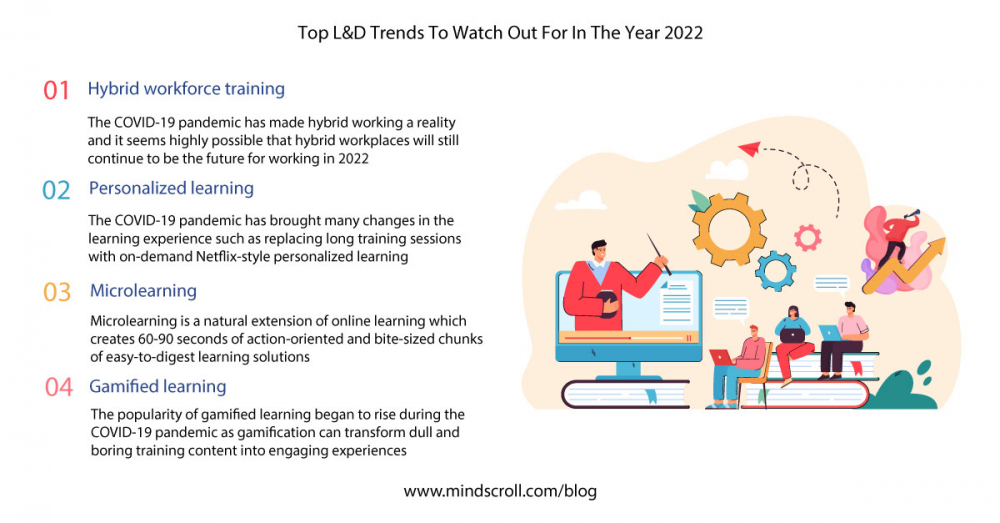
The modern workplace is evolving at a rapid pace, and along with it, Learning and Development (L&D) strategies are undergoing transformative changes to keep up with the shifting educational needs of employees. Some trending topics within the L&D sphere are proving to have long-term relevance. Here are five trending L&D topics that are sure to stand the test of time:
1. Microlearning: A strategy that involves breaking down information into bite-sized pieces, making learning more manageable and less time-consuming for learners. Microlearning caters to the decreasing attention spans and the busy schedules of modern employees. It allows for just-in-time learning, directly at the point of need.
2. Personalized Learning Paths: Personalization in L&D ensures that training is relevant to the individual needs of each learner, based on their skills gaps, career goals, or personal interests. Personalized learning experiences can dramatically increase engagement and retention rates because employees find the content more relevant and actionable.
3. Learning in the Flow of Work: The integration of learning into daily tasks means less disruption to workflow and underscores a culture of continuous improvement and learning. By embedding learning opportunities directly into an employee’s work environment, organizations can create a seamless transition between work and learning.
4. Data-Driven Learning Design: Utilizing data analytics tools in L&D helps in understanding patterns related to how individuals learn, what content is most effective, and evaluating the ROI on training programs. Insights from data analysis enable instructional designers to create more effective training modules and drive strategic decisions about future L&D initiatives.
5. Emphasis on Soft Skills: In an age where automation and artificial intelligence are becoming commonplace, soft skills such as emotional intelligence, critical thinking, communication, and collaboration are increasingly valuable. Training for soft skills helps cultivate a workforce that can adapt to new challenges, lead effectively, and collaborate across a variety of contexts.
These forward-thinking approaches reflect not just a response to contemporary demands but also a preparation for the future landscape of work where flexibility, personal growth, continuous learning, data-informed strategies, and human-centric skills will be key drivers of success for both individuals and organizations alike.
